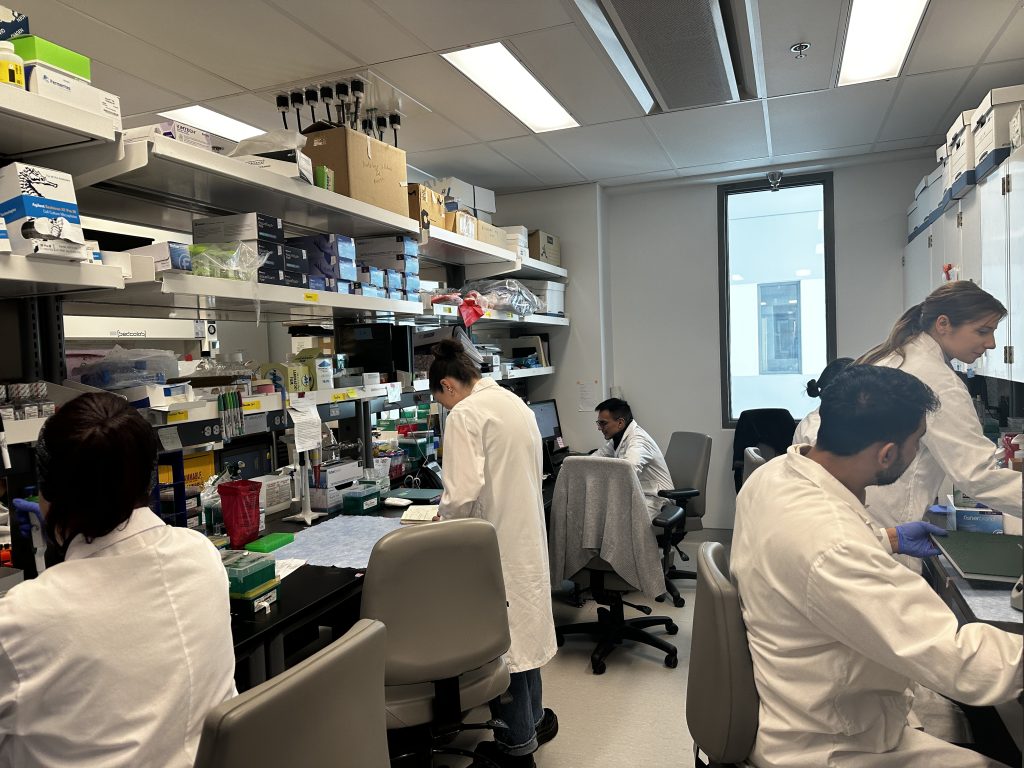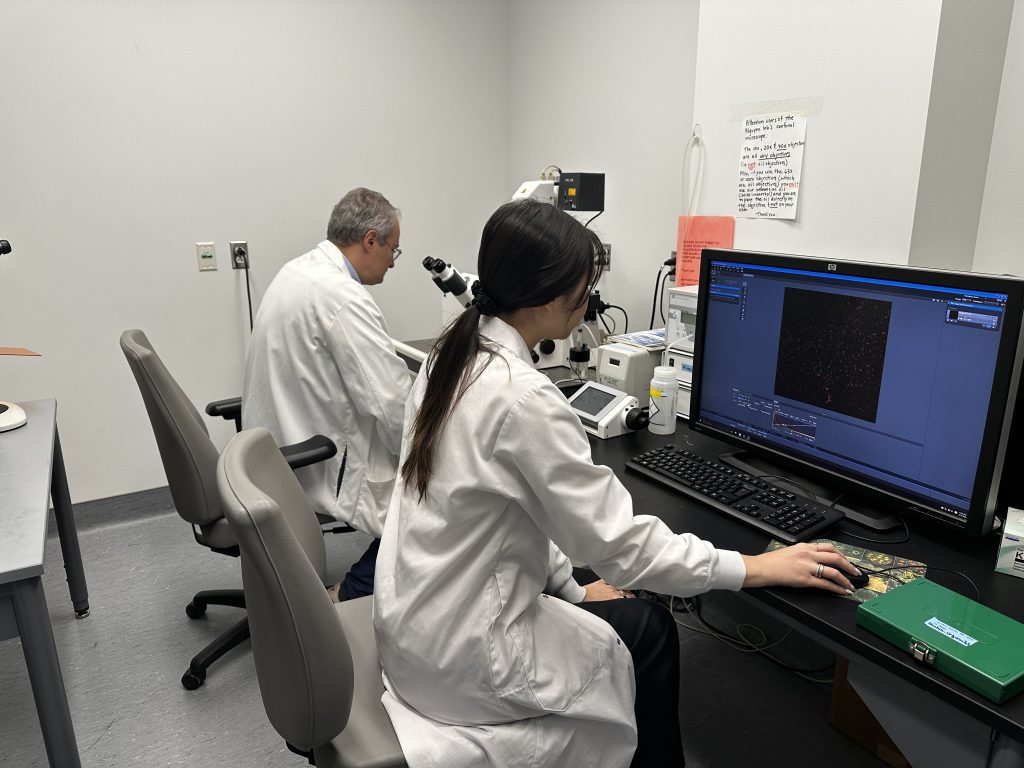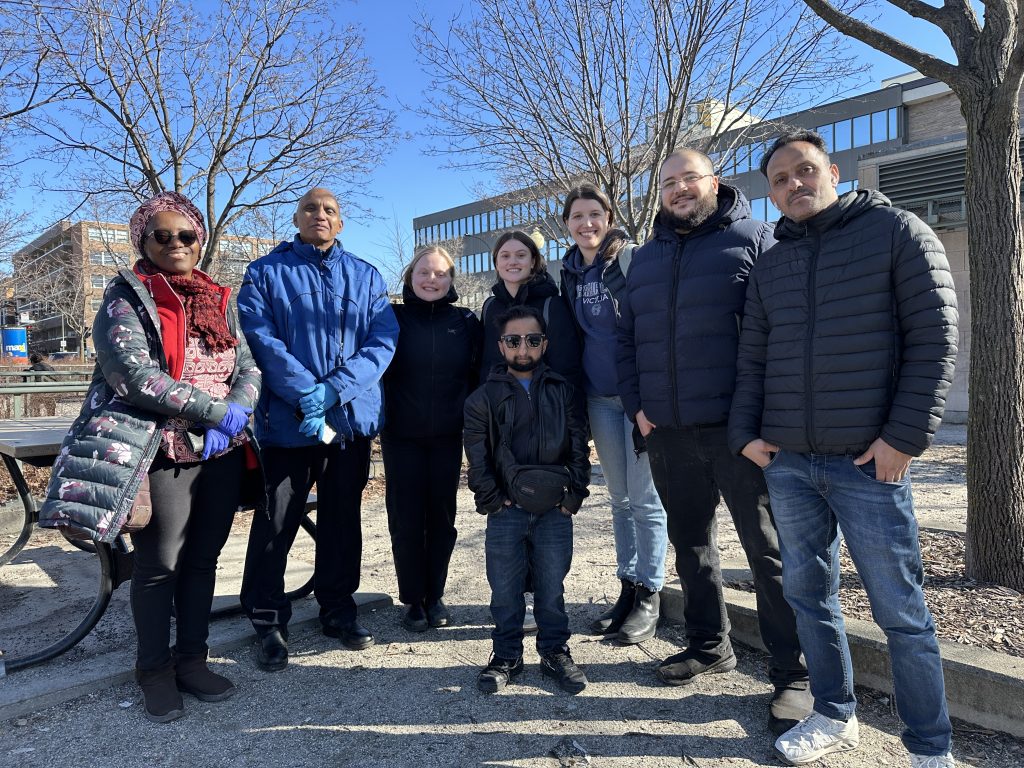Montreal scientists make discovery that could protect against influenza

Posted February 20, 2025 2:17 pm.
Last Updated February 20, 2025 5:25 pm.
Quebec has been facing its worst flu season in 10 years with thousands of influenza cases reported in February alone.
Now, a team of scientists at the Research Institute of the McGill University Health Centre (RI-MUHC) in Montreal could help protect against influenza with their new discovery.
“The end goal of this study was to really reduce the severity of the disease and number of the people that end up in the ICU,” said Dr. Maziar Divangahi, a pulmonary immunologist and senior scientist at RI-MUHC.
A pre-clinical trial uncovered that a component found in all fungi may provide a shield against flu-related lung damage like influenza. A team of scientists led by Dr. Divangahi found that beta-glucan, administered to mice before their exposure to influenza, can reduce lung damage, improve lung function and lower the risk of illness and death.
“This particular structure that has been identified seems to be very important in regulating the immune system,” explained Dr. Divangahi. “It’s very interesting. So if you infect animals with the lethal dose of the influenza virus, usually you have 100 per cent mortality. So as soon as you treat these animals with beta-glucan, then you increase the mortality. You increase the survival to almost 100 per cent. So now all the mice survive.”

The team used a unique structure of the beta-glucan component for the study, which can be found in all fungi from mushrooms, yeast, oats and barley.
While most research focuses on stopping the virus from replicating, Dr. Divangahi says they wanted to explore how to regulate the body’s immunity to infection. He notes they infected mice models with influenza variants H1N1 and H3N2.
“If we don’t repair that tissue damage that caused by the inflammation, then we will have problem. So your lung is no longer able to function properly.”
Dr. Divangahi adds they want to prevent patients going to the ICU, noting there are multiple different structures of beta-glucan, and not every beta-glucan will do the same thing.
He notes the same structure of beta-glucan shows promise against other diseases like tuberculosis (TB) and is currently in clinical trials for some breast cancers.
“This unique subset of the immune cells called neutrophils seems to be reprogrammed by beta-glucan at the level of the bone marrow. And now they’re coming into the inflammatory side in the lung and they’re able to suppress the excessive immune responses and prevent the tissue damage and enhance your tolerance against infection.
“Several years ago we published a paper that giving beta-glucan could really boost your immunity against tuberculosis. And that’s something that we are still also trying to understand more about the mechanism of action of beta-glucan in tuberculosis.”

Dr. Divangahi says developing effective therapeutic strategies for respiratory diseases is more critical than ever, especially with flu season underway and the looming threat of bird flu.
“Every time you have infection in the lung you generate inflammation and that inflammation, the consequences of that inflammation, which is designed to kill a pathogen, has basically collateral damage and can cause damage in your lung tissue. And that damage needs to be controlled and needs to be repaired. And if we don’t repair that tissue damage that caused by the inflammation, then we will have problem.”
The researcher anticipates more research lies ahead in understanding how the fungi can help against other ailments, hinting that human clinical trials are next, hypothesizing this could potentially be given as a pill or vaccine
“We’re trying to delineate the differences between these mechanisms and then trying to find out, if you want to treat, if you want to use beta-glucan against TB, what exactly we need to do? Or against the flu, what do we need to do? Or against the cancer, what do we need to do?”
The results of this trial were published in Nature Immunology.








